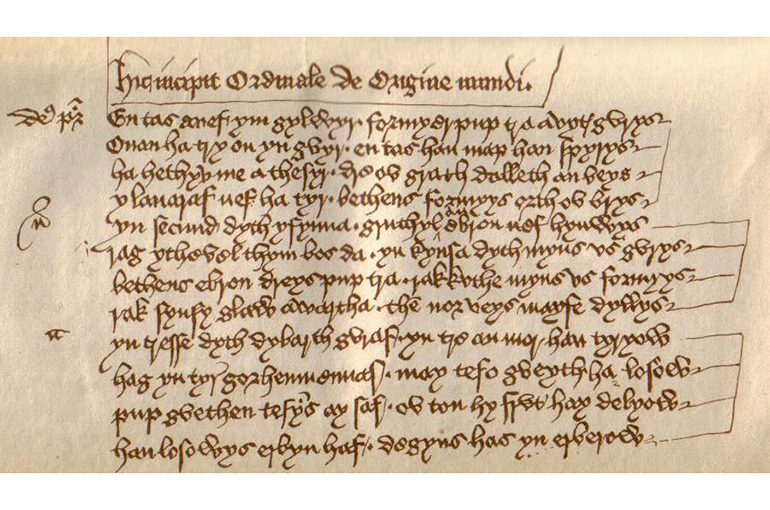100 years of Celtic Languages and Culture in Utrecht: "This deserves a big celebration!"
Nikè Stam and Aaron Griffith in the Celtic Students Podcast

Next year the degree programme Celtic Languages and Culture will celebrate its 100th anniversary. For this occasion it will organise the seventeenth International Congress of Celtic Studies (ICCS), which will take place in Utrecht in July 2023. In an episode of the Celtic Students Podcast, assistant professor Aaron Griffith and lecturer Nikè Stam tell more about the history of Celtic in Utrecht and the upcoming congress.

How it started: Anton van Hamel
In the run-up to the upcoming ICCS, Utrecht is the place to be if you are interested in Celtic, podcast interviewer Nina Cnockaert-Guillou believes. But how did that come about?
"It all started with a man called Anton Gerard van Hamel," Stam says. Van Hamel graduated in the field of Dutch Language and Culture, but saw a strong connection between the two language groups. He was also captivated by Celtic myths and stories.
"This Van Hamel was offered a position as professor of Germanic languages in 1923," Stam continues, "and he insisted that Celtic would be added to the chair."
Celtic Languages in Utrecht
Before the introduction of the BaMa system, Celtic was only a doctoral study, Stam says. So many students first started with English Language and Culture and then moved on to Celtic. The Utrecht Celtologists fought to make Celtic a Bachelor's programme of its own.
Griffith, who is also a training coordinator, points out that the Utrecht programme has a wide range of courses. The focus is on the Middle Ages, but it does not limit itself to one Celtic language or to the British Isles. "And we also have a critical mass of scholars", Griffith emphasises. "So it's not one professor doing everything, there is a number of us."
ICCS in Utrecht
How did the programme get the opportunity to organise ICCS 2023? Griffith says that, within the programme, he was the one who was the most enthousiastic. "My pitch was: we need to do something to celebrate one hundred years of Celtic in Utrecht, so why not do something big?"
Once the intention was in place, Utrecht secured the ICCS without many obstacles. According to Griffith, there was not much competition – it is a lot of work to organise a congress and academics are not necessarily good at it. Stam adds: "There are a lot of things that you can't really plan in advance, so you have to worry about it."
Real life contact
Despite the hard work, both Celtologists are looking forward to the congress. According to Stam, the ICCS is a great way to keep up to date with the work of colleagues.
Griffith emphasises how important it is for academics to meet each other in real life. After all, when you tell them what you are working on and get immediate feedback. "To have that exchange, that is so valuable."
Outreach programme
In addition to the ICCS, a special programme for students and alumni will be organised to celebrate the anniversary. These events will take place in the first week of July next year.
The programme will include an exhibition in the University Library, an event for alumni, lectures and a whisky tasting, Stam says. She is also looking forward to the music performances by alumni, as many of them make music.

